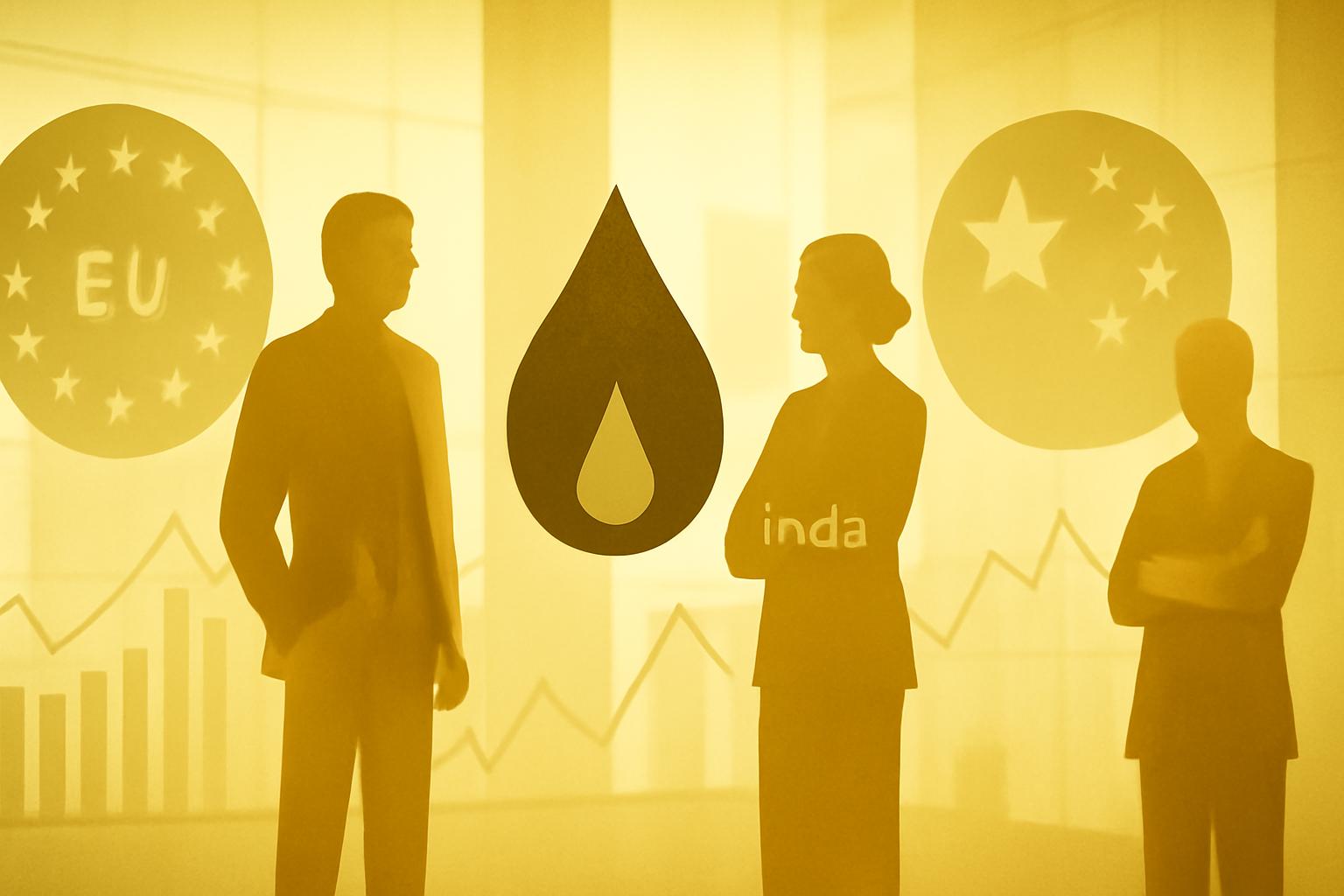Trump Proposes Steep EU Tariffs on India and China Amid Russian Oil Concerns
Former U.S. President Donald Trump has reportedly pressed the European Union to impose tariffs as high as 100% on India and China, targeting their ongoing purchases of Russian oil. The proposal, first revealed by the Financial Times and confirmed by sources to CNBC, was made during a recent Washington meeting involving senior U.S. and EU officials.
According to reports, the U.S. was prepared to reciprocate any tariffs Europe might enact on these countries. However, the White House has not publicly commented on the matter.
EU’s Reserved Response and Trade Complexities
A European Commission spokesperson declined to disclose meeting specifics, citing confidentiality, but reaffirmed the EU’s commitment to sanction enforcement through diplomatic engagement with India and China. The Commission highlighted its ongoing efforts to counter sanctions circumvention via third countries, describing the U.S. as a key partner in pressuring Russia’s war economy.
European officials appear reluctant to adopt Trump’s aggressive tariff strategy, especially given the EU’s own nuanced economic ties with Russia. Despite a reduction in Russian gas imports since 2021, the EU remains dependent on Russia for certain energy supplies, complicating any punitive measures against third-party buyers like India and China.
Trade Negotiations and Strategic Contradictions
The timing of Trump’s tariff proposal has drawn scrutiny, as the U.S. is actively negotiating trade agreements with both India and China. The U.S. currently imposes a 50% tariff on India, including a punitive 25% duty related to its Russian oil imports—a measure India has publicly condemned as unfair.
Ian Bremmer, founder of Eurasia Group, described Trump’s demand as contradictory to his trade priorities, suggesting it may serve to shift the burden of sanction enforcement onto Europe while avoiding direct U.S.-China tensions.
Expert Analysis: Europe Unlikely to Comply
Analysts widely agree that the EU is unlikely to comply with Trump’s tariff demands. The bloc’s preference for diplomacy over trade conflicts, coupled with its economic interests, makes steep tariffs impractical. Bill Blain, a London-based market strategist, emphasized Europe’s aversion to tariffs as a trade policy tool and predicted a firm rejection of the proposal.
Moreover, the EU’s substantial bilateral trade with Russia—which totaled roughly €67.5 billion ($78.1 billion) in 2024, including significant energy imports—further complicates any move to punish countries for engaging with Moscow.
U.S. Energy Strategy and European Market Share
Trump has touted a U.S.-EU trade framework under which Europe committed to purchasing $750 billion worth of U.S. LNG, oil, and nuclear products over three years. U.S. officials view expanding American energy exports to Europe as a way to reduce Russian influence in the continent’s energy sector.
U.S. Secretary of Interior Doug Burgum highlighted LNG exports as a straightforward strategy to displace Russian gas in Europe, benefiting both U.S. market share and allied energy security.
FinOracleAI — Market View
Trump’s call for the EU to impose 100% tariffs on India and China introduces heightened geopolitical risks but is unlikely to materialize given EU’s cautious stance and complex trade relations with Russia. The proposal may strain U.S.-EU coordination and complicate ongoing trade negotiations with India and China. Market participants should monitor EU responses and potential shifts in U.S. trade policy toward Asia and energy exports.
Impact: Neutral













